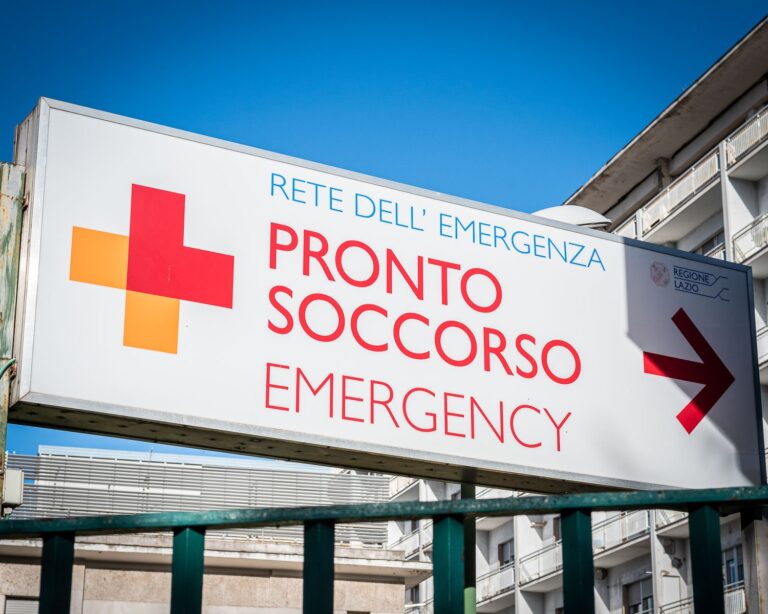Italian Passport Requirements Are Simple With This Guide
You will easily be able to assemble all your Italian passport requirements with this complete documentation guide from someone who did it.
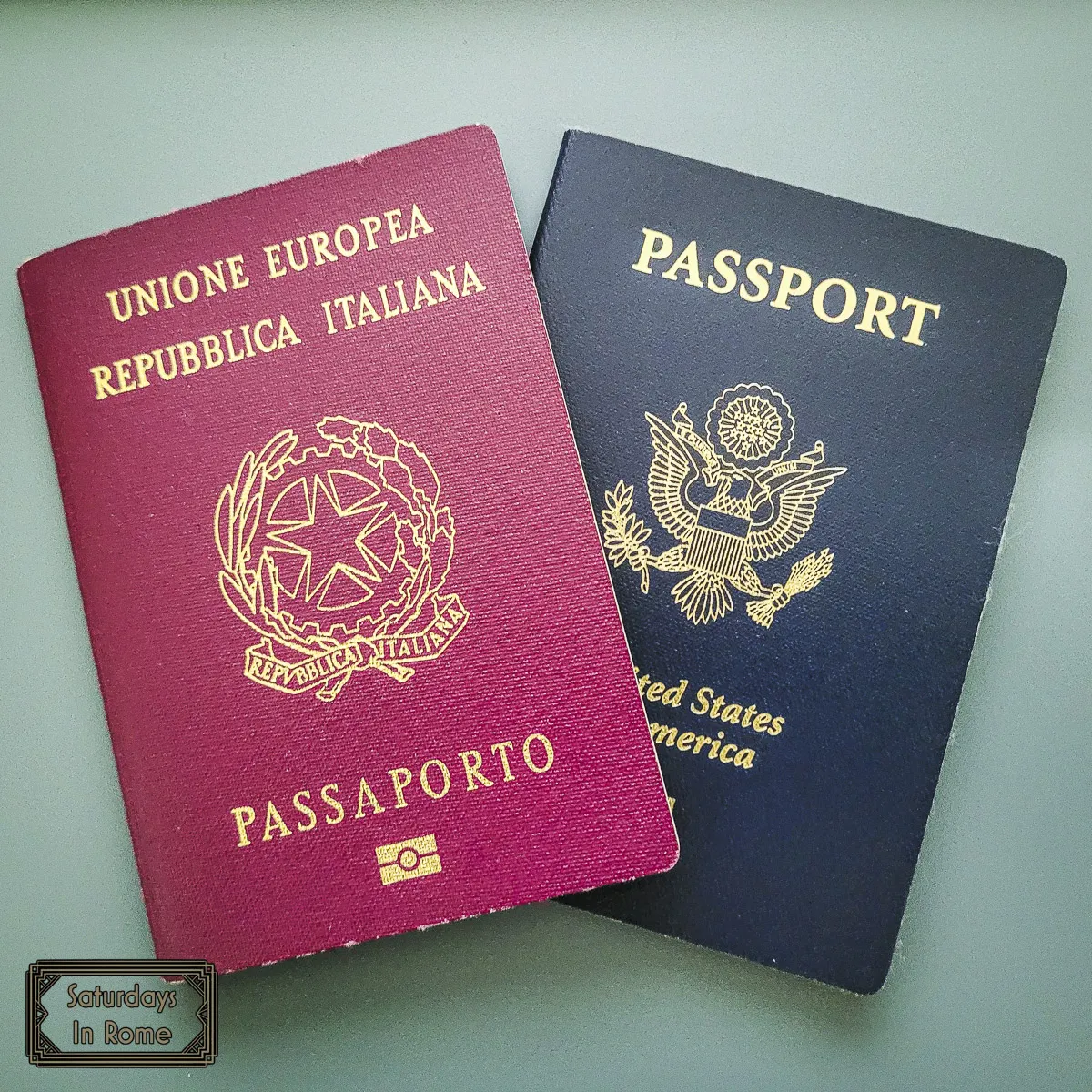
Many people that are passionate about Italy and would like to move to the country consider getting citizenship as an option with the goal of making the transition easier by not needing to worry about a visa.
Need Help Planning?
- Cheap Flights: Find The Most Affordable Flights.
- Accommodations: From 1 to 5 Stars And More.
- Car Rentals: Affordable Travel Across Italy.
- Sightseeing Tours: Explore Some Amazing Tours.
- Buying An eSIM: Stay Connected In Italy.
This post includes affiliate links.
There are multiple ways to become an Italian citizen:
Italian Citizenship by Descent (Jure Sanguinis) – If you have Italian ancestry, this process might be an option. I wrote ‘might’ because there are a number of requirements necessary to make this a possibility, and I’ll get into that below and in a subsequent post.
Italian Citizenship by Marriage (Jure Matrimonii) – If you are married to an Italian citizen, there is a process to apply for citizenship called Jure Matrimonii, which is different from the Jure Sanguinis, has different requirements and probably will take you much longer to finish.
Italian Citizenship by Residency – If you are a non-EU citizen and you have lived in Italy legally for more than ten years, this might be an option. If you are an EU citizen, then the wait is only 4 years. I won’t be writing about this process because we didn’t do it and we are not as familiar with it.
Italian Citizenship Through Birth (Jure Soli) – This focuses on if you were born in Italy to non-Italian parents. There are very specific requirements about the citizenship or statelessness of the parents that limit a child’s ability to be recognized as an Italian citizen.
Getting Started With Italian Passport Requirements
Before you start asking for birth certificates you should do a preliminary evaluation of your family history to confirm the Jure Sanguinis process is an option for you. To qualify for citizenship through your ancestry, you must meet the following basic criteria:
Were you born to an Italian citizen parent, or a parent with the right to Italian citizenship, through “jure sanguinis”?
The laws surrounding Italian citizenship changed in 1992, so if you were born before 1992, the Italian parent must be naturalized in another country at the time of your birth.
Laws surrounding female Italian citizenship can get trickier because of the legal rights of women in Italy in the past. If you are using an Italian-born female ancestor, you must have been born on or after January 1, 1948.
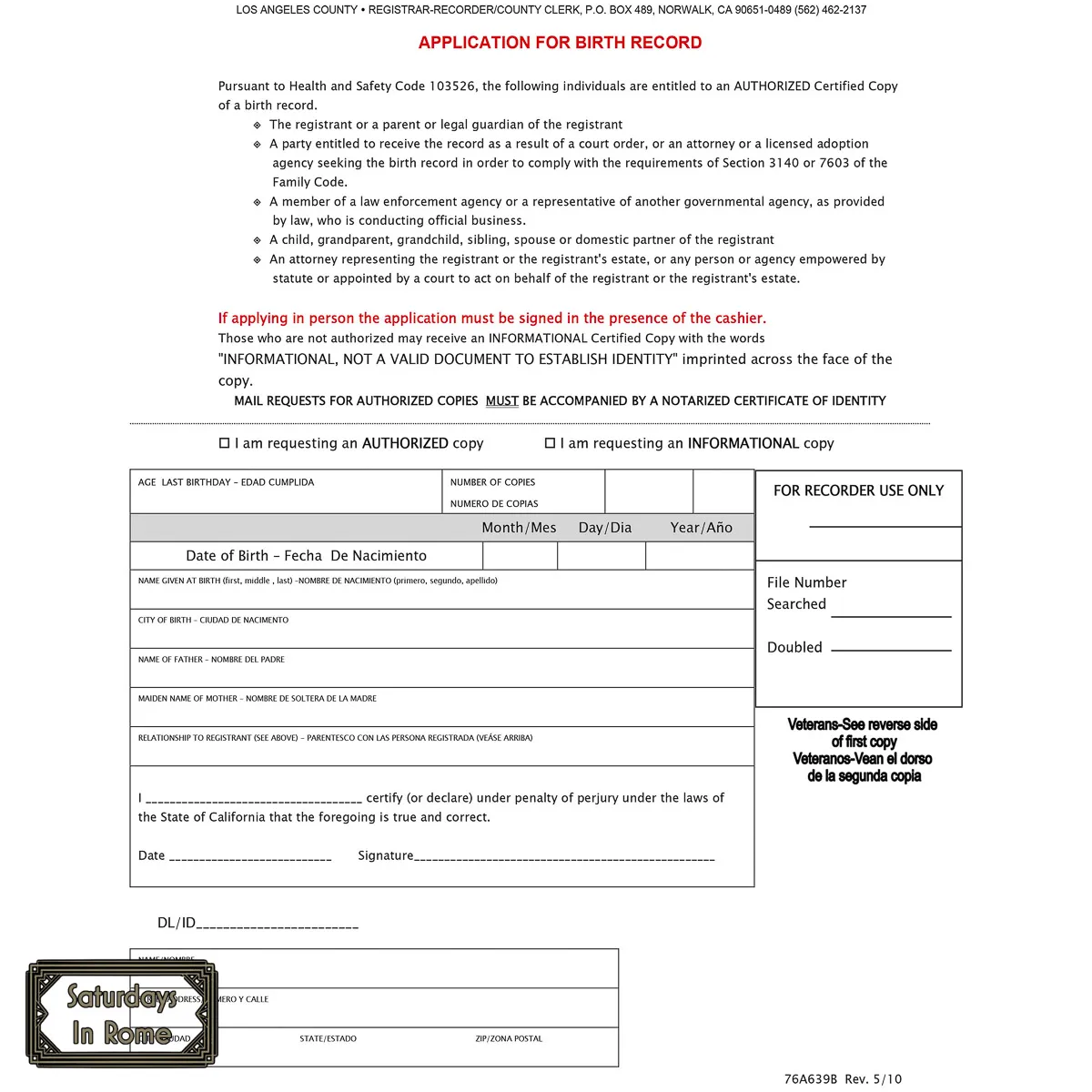
Naturalization Documentation
Naturalization, as indicated in the second bullet above, is important but not always so obvious. Ask around to some of your older relatives to see if your great-grandfather, as an example, decided to get Naturalized in the US before having children. Again, I’m using the US as an example because of familiarity, but this goes for any country.
If you have any questions about the above requirements, you can check-in with the Italian consulate in your region.
Italian Passport Requirements
So you reviewed the basic criteria I listed above and you think you might be a candidate for Italian citizenship and all the benefits that come with it. Now here comes the fun part.
I said fun, but this is where you need to do some real soul-searching because there is a ton of paperwork needed for this process and if that isn’t a skill of yours, you might want to consider getting help from a family member, or outsource this part of the process. There are a number of companies that you can pay to help you collect your documentation, so it would be better to make that decision now, instead of changing mid-stream.
Italy Dual Citizenship Requirements
Regarding the documentation, it’s simple: you need every birth, death and marriage certificate for you, your children, and every ancestor that is a link in your chain back to Italy. For example, if your grandfather was born in Italy, you will need all three of those documents, when applicable, for you, your children, your parents and your grandparents.
Easy, right? Well here are some fun obstacles you might run into:
If your grandparent was born in Italy, you will need an official copy of their birth certificate, and possibly marriage certificate, from the town in Italy they were from.
If there are any discrepancies in the spelling of the names, which is not uncommon, you will probably need a court order indicating that it was the same person. This was my experience because my grandfather decided to shorten our last name without any kind of paperwork or legal process, so my father had a different surname than his father on official documents.
If one of your ancestors that was born in your country has died, you might need to get a court order to release the birth records. This also was my experience because there are legal limitations in New York on releasing records in an attempt to thwart identity fraud. There may be other states that have this requirement, so be prepared to need a lawyer.
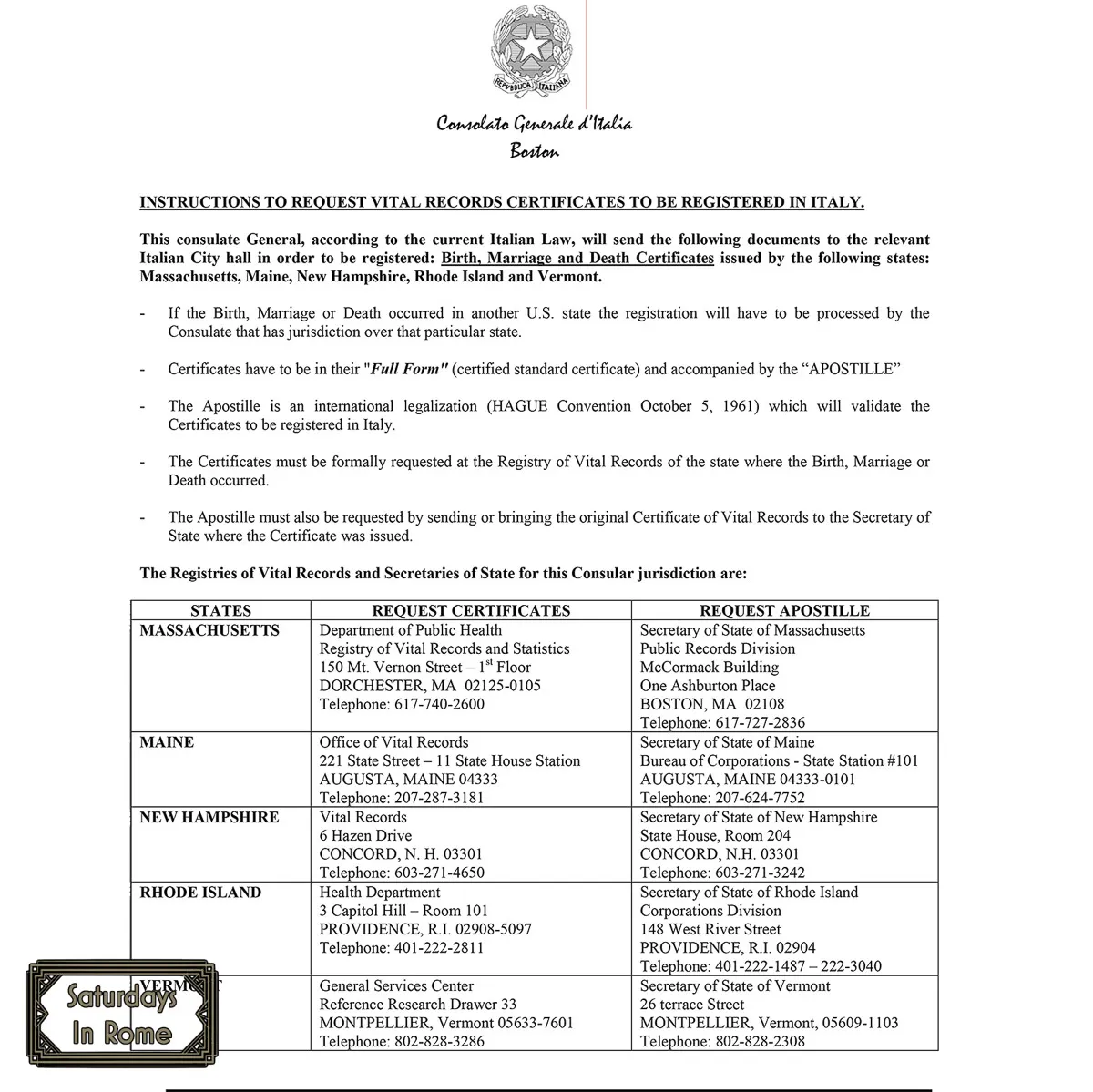
The consulate will look for any discrepancy to disallow your application, not because they don’t like you, but because they are looking out for their interests. Simple typos in the birth date or spelling variations in the names are things to get in front of before you submit your paperwork.
Italian Citizenship Application Requirements
All US Federal or State documentation needs to be certified as valid, and this certification is called Apostille certification. From the State Department of the US:
“Apostilles authenticate the seals and signatures of officials on public documents such as birth certificates, court orders, or any other document issued by a federal agency or certified by an American or foreign consul. An apostille certifies the document(s), so the document can be recognized in foreign countries that are members of the 1961 Hague Convention Treaty. We only issue apostilles for federal documents to use in countries that are members of the 1961 Hague Convention.”
For your federal records, like the confirmation from the Department of Homeland Security that your ancestor was never naturalized, they will need to be sent to the State department to be certified and you will provide the return method. There is a form needed and some specific mailing requirements, so be sure to check out the State Department’s site.
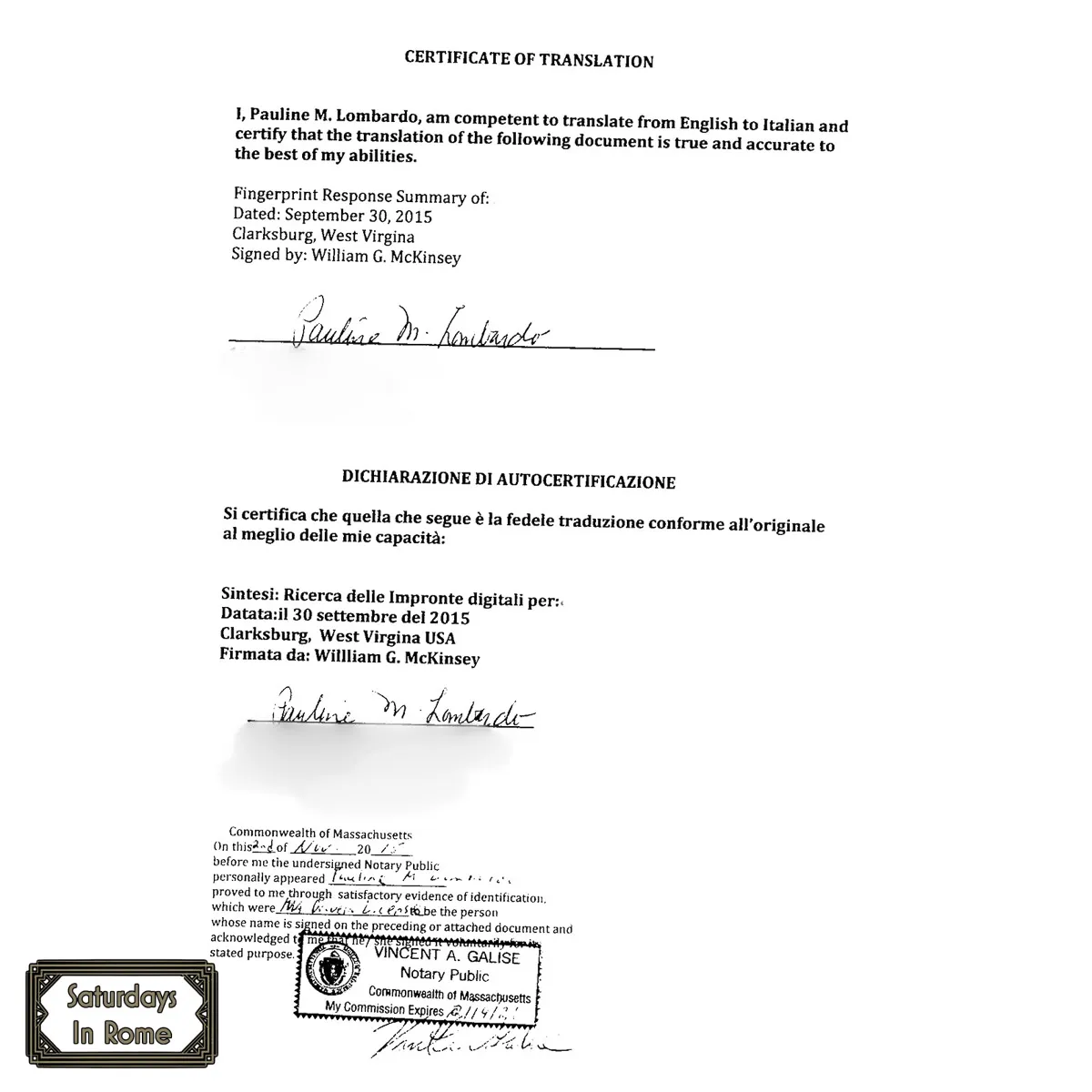
For state documents, like the birth and death certificates, this certification is done by the Secretary of State’s department, so you’ll need to check out all the states involved in your process. I had the pleasure of working with four different states in this process, but your mileage may vary.
Now that you have all your documents and they are all certified by the controlling authority, they will need to be translated into Italian. Obviously, this isn’t necessary for your Italian state records, but everything else, yes.
There is specific wording necessary for this translation, so while it might be easier and cheaper to use a friend who knows Italian, I would recommend someone who works as a translator or is recommended by the Consulate.
Other Italy Dual Citizenship Requirements
You have all your Italian passport requirements in order, so now it’s on to the next step in this process. Check out the next post on the various paths to citizenship:
- How The Government In Italy Supports Tourists.
- Your Guide To Italian Citizenship Through Marriage.
- Our Experience With Getting Italian Citizenship By Descent.
- Helping Understand Applying For Italian Citizenship By Birth.
- How Is The Italian Government Elected By Its Citizens?
- How Does The Italian Government Work? It’s Not A Mystery.
- The Post Office In Italy Is Easy To Manage With This Guide.
- Does Italy Have A King Today Or Did It Ever Have One?
- The Italian Digital Nomad Visa Is Finally Available!
- Do You Need An ETIAS To Travel To Italy?
- Heroes Of Sicily And The Mafia Villains They Fought.
- Who Killed Aldo Moro? His Kidnapping And Murder Is Explained.





